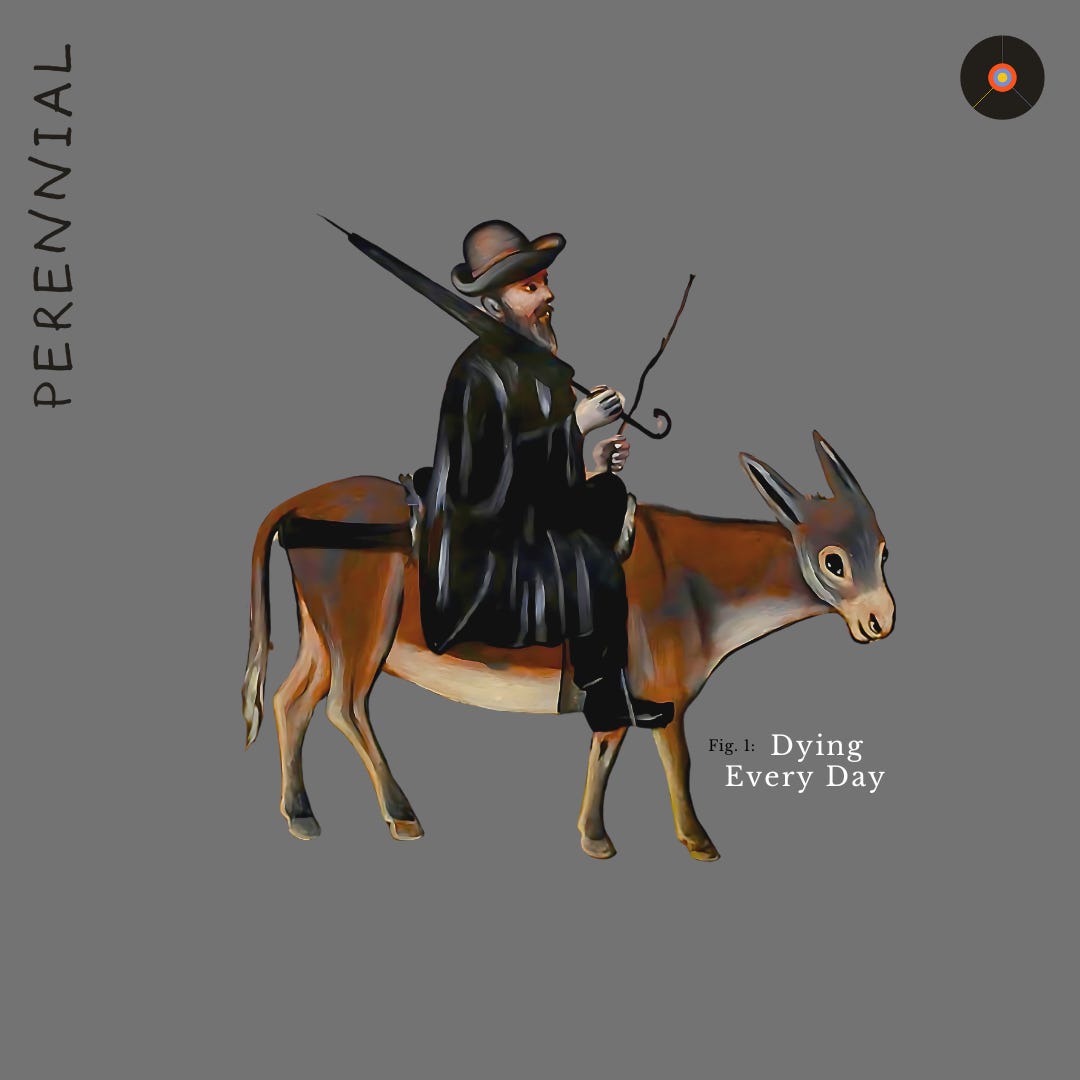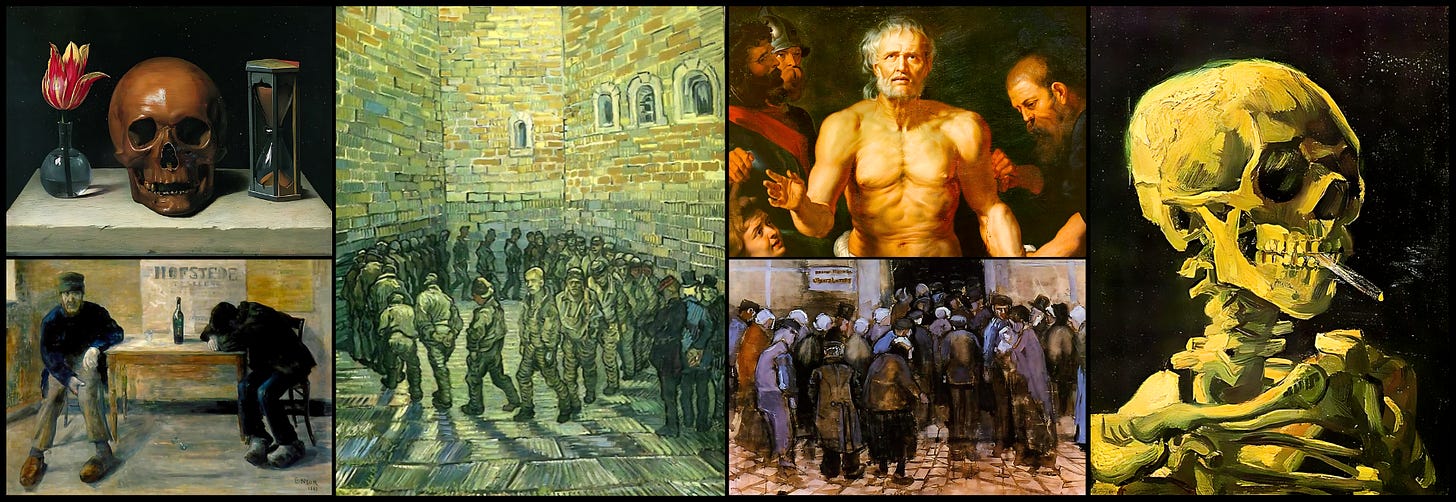Dear Readers & Listeners,
As I mentioned previously, my area experienced an extended power and internet outage due to hurricane damage. But I am happy to report that we are back up and running. Moving forward, you can expect a regular cadence of meditations.
Thanks for your patience,
J.W.
💀 Dying Every Day
The Dying Every Day series delivers guided Stoic meditations on the art of living. Each meditation provides a quote, a selected passage, and a journaling prompt to consider. These meditations are designed to help you (and me) reflect on what it means to live a ‘good’ life.
Listen on Apple Podcasts, Spotify, or YouTube.
The Work of Philosophy
“Shake yourself out; check yourself over; look at yourself in different ways. Above all, consider whether the progress you have made has been in philosophy or in life itself. Philosophy is neither a trick before an audience nor a thing set up for display. It consists not in words but in actions.”
— Seneca, Moral Letters
Selected Passage
In this week’s Dying Every Day meditation, we’re exploring the work of philosophy — through a selected passage from Epictetus.
When a man consults him on how to persuade his brother to cease being angry with him, Epictetus replies: Philosophy does not propose to secure anything external for a man. If it did (or if it were not, as I say), philosophy would be allowing something that is not within its province. For as the carpenter’s material is wood, and that of the statuary is copper, so the matter of the art of living is each man’s life. What, then, is my brother’s? That again belongs to his own art, but with respect to yours, it is one of the external things, like a piece of land, health, and reputation. But Philosophy promises none of these. …
When the man who was consulting him said, I seek to know this: How, even if my brother is not reconciled to me, shall I maintain myself in a state conformable to nature? Nothing great, said Epictetus, is produced suddenly since not even the grape or the fig is. If you say to me now that you want a fig, I will answer that it requires time: let it flower first, then put forth fruit, and then ripen. […]
+ Adapted from Discourses
Reflection Exercise
When we examine our lives, we are wise to contemplate how we think about progress. We might ask, “What does it actually mean to make progress?”
One of my favorite passages from the writer C.S. Lewis is on the topic. He remarked,
Progress means getting nearer to the place you want to be. And if you have taken a wrong turn, then to go forward does not get you any nearer. If you are on the wrong road, progress means doing an about-turn and walking back to the right road. …
Similarly, in our opening quote, Seneca discusses the importance of examining ourselves (or determining where we are on the path). He stressed, “Shake yourself out and look at yourself in different ways.” We all generally know intuitively that this is not a one-and-done practice. We must look at ourselves from different perspectives and adopt the mindset that the work of philosophy is never truly finished.
—
Journaling Prompt
Consider reflecting on how you can live an examined life while simultaneously remembering that “life must be lived forward.” Or, put another way by Seneca, how can you remember that your philosophy “consists not in words but actions.”
Follow Us: Instagram | Youtube
—
Thank you for reading/listening; I hope you found something useful.
Until next time, be wise and be well,
J.W.
P.S. New here? Catch up on previous volumes in the archive!















Share this post